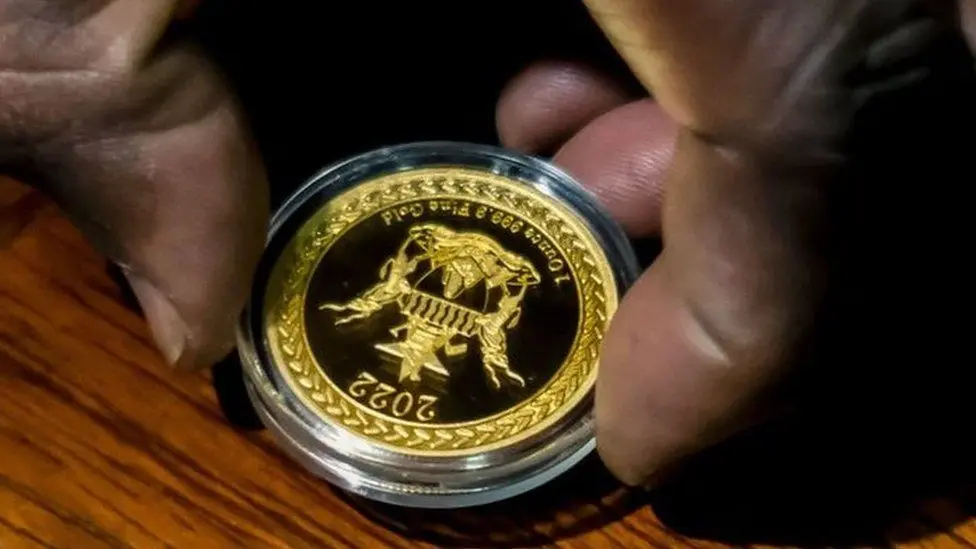Zimbabwe has introduced a new gold-backed currency called ZiG – the name stands for “Zimbabwe Gold”.
For the past 25 years, the economy has faced multiple crises. This is the latest attempt to stabilize it.
Unveiling the new notes, central bank governor John Mushayavanhu said the ZiG would be structured, and set at a market-determined exchange rate.
The ZiG replaces a Zimbabwean dollar, the RTGS, which had lost three-quarters of its value so far this year.
Annual inflation in March reached 55% – a seven-month high.
Africa Today News, New York reports that Zimbabweans have 21 days to exchange old, inflation-hit notes for the new currency.
However, the US dollar, which accounts for 85% of transactions, will remain legal tender and most people are likely to continue to prefer this.
The new ZiG banknotes come in denominations of between 1 and 200.
Read Also: CBN Finally Lifts Ban On Cryptocurrency Transactions
Coins will also be introduced to overcome the shortage of US coins, which has seen people receive change in sweets, small chocolates and pens.
Mr Mushayavanhu said the new currency was being rolled out with immediate effect and banks must convert current Zimbabwe dollar balances to the ZiG.
He committed to ensuring that the amount of local currency in circulation was backed by equivalent value in precious minerals – mainly gold – or foreign exchange, in order to prevent the currency losing value like its predecessors.
Zimbabweans have a historic mistrust of the central bank, dating back to 2008, when it was printing Z$10tn notes while inflation had run out of control.
It then abolished its own currency and for many years only used foreign banknotes such as the US dollar and the South African rand.
In late 2016, the body introduced a new currency called the bond note that was backed by the US dollar loan facility. The then-central bank governor John Mangudya vowed it would remain on a par with the US dollar. But the bond note crashed when the government began printing excess money.
Promises have now been made by the central bank’s new governor that overprinting will not be allowed to happen again.
But public reaction on Friday to the latest currency reveal has been subdued.
“We now end up in the same place where we started – where assurances are being given to the market that the government will live within its means,” economist Godfrey Kanyenze told reporters.
“The political culture has not changed – the critical point is discipline on the part of the authorities.”
The announcement of the new currency comes as the country is grappling with the effects of a serious drought, which has destroyed half of the country’s crop of the staple food, maize.

